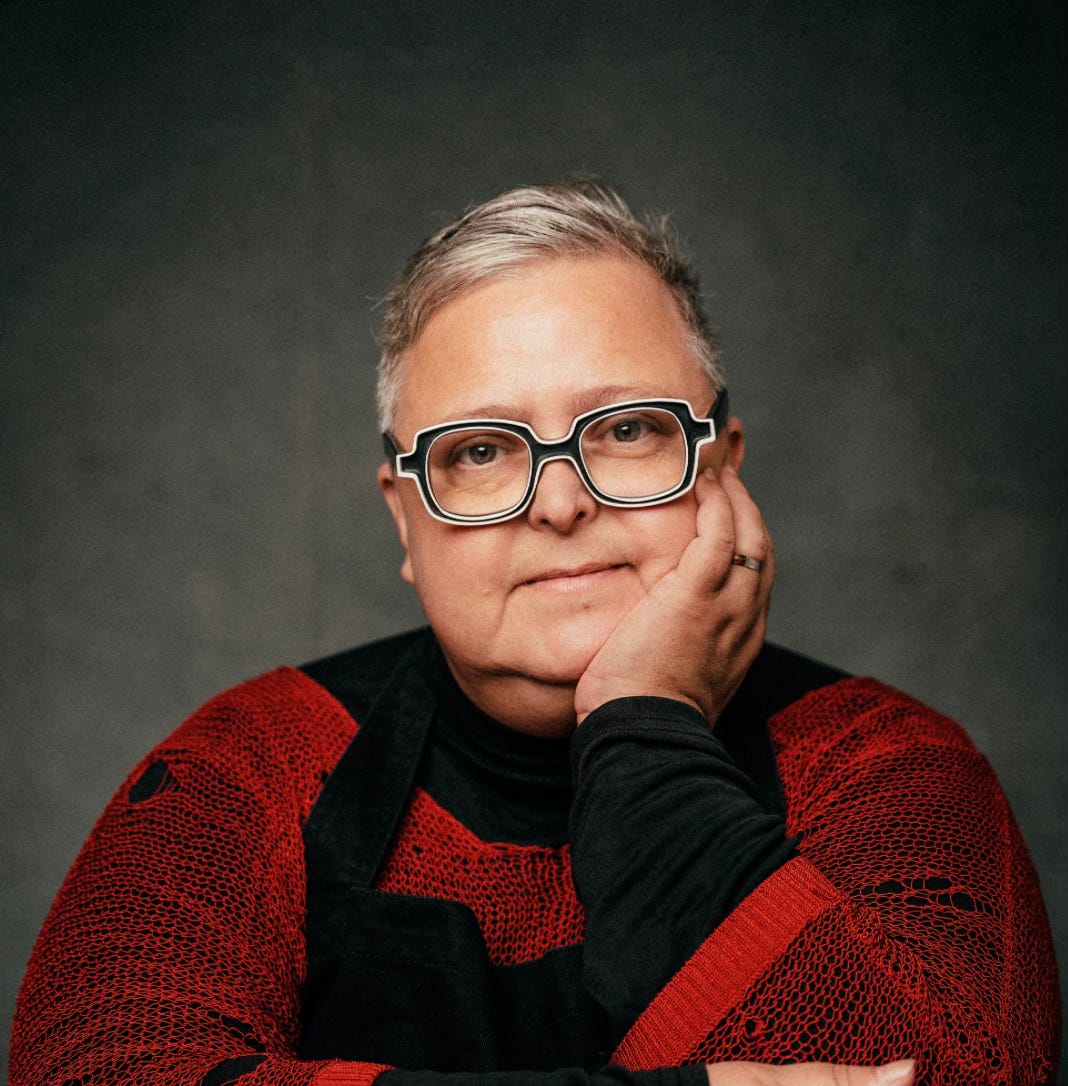Taming the ghosts: Using horror as metaphor
This week award-winning Australian author and poet Kris Kneen shares some thoughts about using horror when writing fiction
You’re reading the weekly issue of Compendia. Did you know that for less than £5 per month paid subscribers get access to ALL my posts and the complete archive, including news, essays, fiction and both the background to The Experiment and the chapters themselves, PLUS the entire archive of Writers’ Lodge posts AND a discount on my COACHING packages. You’ll also be supporting me and allowing Compendia to continue and grow.
Hi friends
Something a bit different from Compendia this week. I’m handing over the reigns to a writer I’ve long admired.
Kris Kneen is the award-winning author of memoir—Affection and The Three Burials of Lotty Kneen—and fiction: An Uncertain Grace, Steeplechase, Triptych, The Adventures of Holly White and the Incredible Sex Machine, Wintering, as well as the Thomas Shapcott Award-winning poetry collection Eating My Grandmother. They have written and directed broadcast documentaries for SBS and ABC Television. Fat Girl Dancing is their latest book.
I first met Kris when I was travelling to promote Before I Go to Sleep. We shared a publisher in Australia and New Zealand, and were introduced at the Writers’ Festival in Brisbane, where Kris lives and works as a bookseller and writer. We hit it off immediately, and as soon as I got home I devoured their books and developed a literary crush which is as strong today as it was then.
It’s still tough to find Kris’s work in the UK, but it’s not impossible and I definitely recommend it. I asked them if they‘d like to contribute anything to Compendia, and I was not only delighted when Kris said yes, but stunned by the piece that they came up with. I hope you enjoy it as much as I did.
Taming the ghosts: Using horror as metaphor
by Kris Kneen
Taming the ghosts: Using horror as metaphor
I have always loved horror. It is a genre that attracted me when I was a child and it’s no wonder. My experience of the world has always been as an outsider. My family were basically professional outsiders. As migrants without a strong community network, they saw themselves as aliens who were working hard to pass in a potentially dangerous society. They were terrified of people seeing that they were different. Their fear was that their differences would be uncovered and mocked. Worse still, even today my mother and aunt don’t believe they are safe in this country. They still think that they could be deported at any moment. This fear of expulsion no doubt comes from the fact that they were indeed expelled from a country in the 50s. Born in Egypt to a Slovenian mother and a father who had lived in Egypt for at least three generations and whose mother was Syrian and most likely Jewish, my grandmother had to flee Egypt overnight in 1956 with her two young daughters. They left everything they owned behind and the possessions that they took with them were stolen from their luggage so that they arrived in England, a place that was foreign to them, with nothing but the clothes they stood up in. Their seemingly extreme paranoia is clearly a manifestation of a deeply ingrained fear of expulsion and a belief that they do not fit into the culture that they have begun to call their own. To add to the otherness of my family, they all identified as artists, painters and sculptors and Australia in the 1960s was a country with a deep suspicion of artists and a chip on its shoulder against ‘cultural elites’ that is prevalent even today.
I grew up reading science fiction books, but instead of being scared of the aliens, I always felt a heartfelt compassion for them. Even if we were supposed to side with the humans in the text I always felt an affinity with them. Perhaps their aggression was prompted by our extreme human nationalism. Perhaps they only attacked us because they could see what aggressive creatures we humans were.
I am someone who ‘passes’ in the mainstream. As a child I could pass as white Australian even though my family could not. As a bisexual person I could pass as heterosexual even though I knew from an early age that I was queer. I spent fifty-five years of my life sitting with groups of women, passing as a woman but feeling that the generalisations about women did not apply to me. It has only been in recent years that I have understood myself as non-binary. It is only now that I have the language to describe what I have always been.
Keep reading with a 7-day free trial
Subscribe to Writing from the Wound to keep reading this post and get 7 days of free access to the full post archives.



